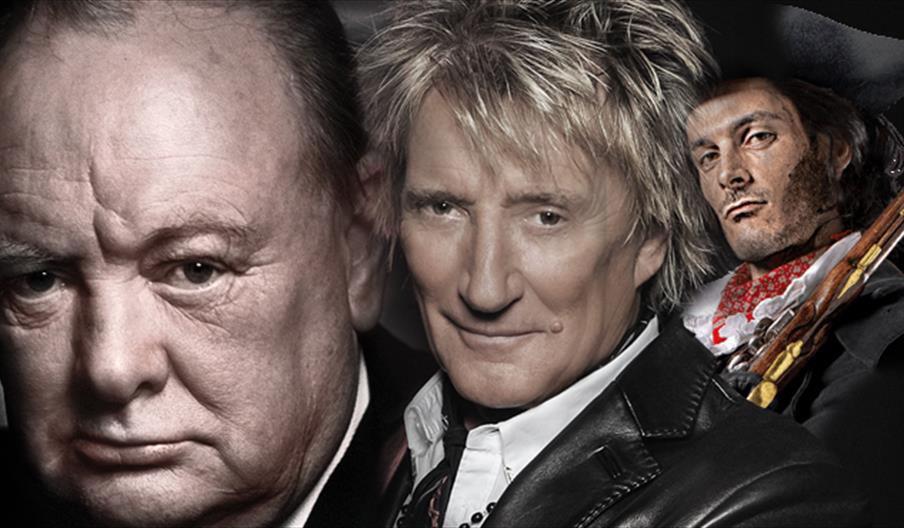Book Tickets Online
About
Ask anyone to name famous people connected Epping Forest and the three top answers are likely to be Winston Churchill, Rod Stewart and Dick Turpin! They may also be aware that the former Chancellor, Phillip Hammond, is also from Epping. There are many others - how many, for example, would know that John Locke lived and died in High Laver, and is buried in the church there, or that the district was home to author Ruth Rendell and recipients of the Victoria Cross in both world wars. A priest from Ongar, Father Byles, refused a place in the Titanic lifeboats to stay and comfort those left on the sinking ship and he is commemorated a short distance from the home of the Jane Talyor responsible for penning Twinkle twinkle little star and from the rooms where explorer David Livingstone stayed before he travelled to Africa. After being pardoned, the Tollpuddle Martyrs returned from penile servitude in Australia to be offered homes as farmers around Greensted, which a number of them took up before later emigrating to Canada. One of them was married in Greensted Church and they are remembered by a plaque on a cottage in Greensted. Another of the district's plaques, this time in Buttercross Lane, Epping, remembers Edward Doubleday, otherwise known as “The Epping Naturalist” whose curiosity about the wildlife of Epping Forest started him on his journey to a lifelong study of butterfies and insects.
Churchill was Epping’s MP from 1934 until the end of the Second World War. He was also Prime Minister during the War. Rod Stewart had a home on the Copped Hall Estate, just outside Epping, and has recently bought elsewhere in the district. When living in the UK he could be seen around Epping or in his favourite pub, the Theydon Oak. John Locke, arguably the most influential philosopher of the Age of Enlightenment, lived in High Laver at Otes, the country estate of Lord and Lady Masham, where he was their guest. He is buried in the church at High Laver in 1704. He was one of the most celebrated intellects of his time and although his importance faded after his death, his influence became prominent again when his ideas on liberty were taken up by the Founding Fathers of America and a whole passage of his writing was used in the Declaration of Independence. Highwayman Dick Turpin was born in 1706 and was part of the infamous Gregory Gang who robbed travellers and locals and hid out in Epping Forest. After a number of close escapes and with a Royal bounty of £200 on his head, he fled to Yorkshire but was taken into custody, recognised, and sentenced to death.
More recently, the rise of the celebrity has seen a number of them attracted to live in the district. The Loughton, Chigwell and Buckhurst Hill area has proved popular with Sir Alan Sugar famously residing in Chigwell and numerous footballers and reality TV stars residing nearby. Indeed, starting with television programmes such as Birds of a Feather, Essex Wives and most recently TOWIE, the area is so famous for Essex stars and their lifestyle that enterprising tour companies have offered coach trips to the area!
Going back in history, important people were attracted to the area and there are remains of Roman occupation, two Iron Age forts and the resting place of the last Saxon King, Harold at Waltham Abbey. His victor, William the Conqueror also made a gift of Ongar to Count Eustace of Boulogne who fought alongside him at Hastings. In 1290, the body of Queen Eleanor lay in state in Waltham Abbey. Waltham Abbey continued its Royal connections in Tudor times with visits from King Henry VIII where he is said to have had important discussions about the reformation. Queen Elizabeth 1 enjoyed the sport in Epping Forest so much she had a Royal hunting lodge built which remains a top visitor attraction today. Shakespeare’s A Midsummer Night’s Dream was almost certainly connected with Copped Hall for a wedding celebration and first performed in the long gallery there. In 1604 Guy Fawkes is reputed to have purchased his gunpowder at the Waltham Abbey Gunpowder Mills. Colonel TE Lawrence, better known as Lawrence of Arabia, bought land in Epping Forest at Pole Hill and built a hut and pool and became involved in the local scouts and cadets. He had plans to build a home and set up a printing business but the First World War and his fame got in the way. The land was sold in 1930 and is now part of the forest and his hut was rebuilt at The Warren but is in disrepair. Following the motorcycle accident in 1935 that was to claim his life, surgeon Hugh Cairns was summonsed to advise on treating his head injuries and, devastated that he could not save Colonel Lawrence, went on to champion the development and wearing of motorcycle helmets. Hugh Cairns lived next door to sculptor Jacob Epstein in Loughton.
As well as Jacob Epstein, there have been other famous connections with the arts in the district. One of England’s most famous composers, Thomas Tallis, was choirmaster at Waltham Abbey. Also at Waltham Abbey is early stained glass work by celebrated artist Edward Burne-Jones. Two further celebrated artists are Lucien Pissarro, the impressionist who painted scene around Epping, and Walter Spradbery whose iconic countryside illustrations for London Transport posters are being used on signposts throughout the forest. He lived his adult life in Epping Forest and is buried in Buckhurst Hill.











